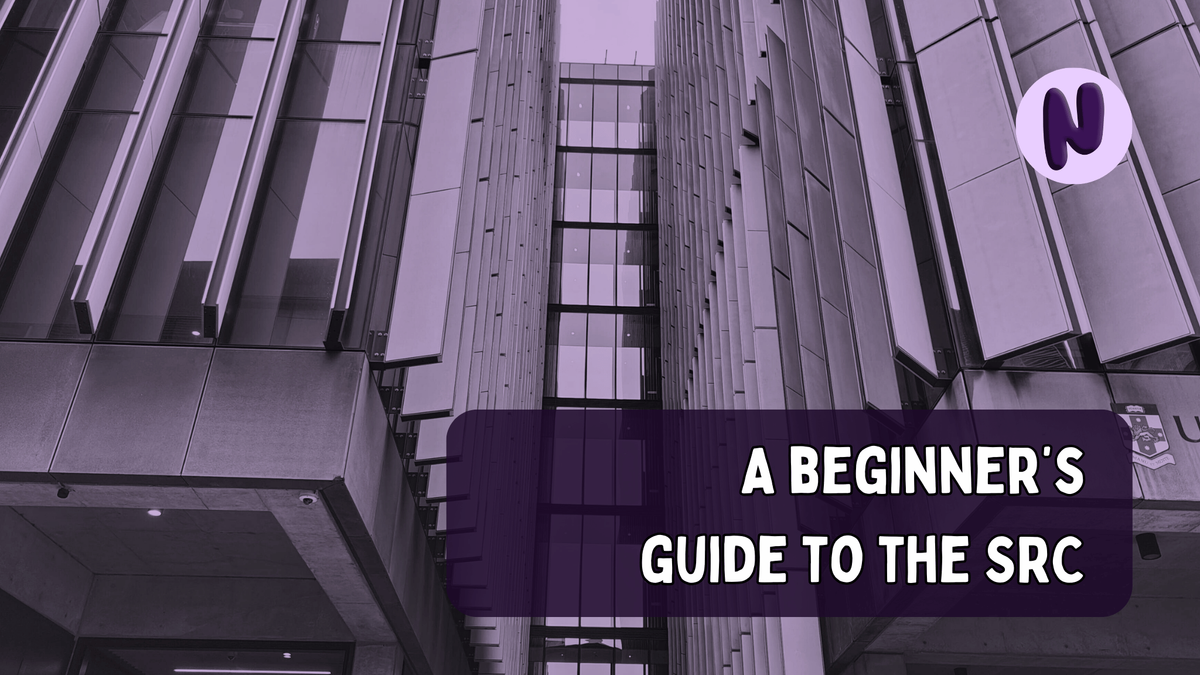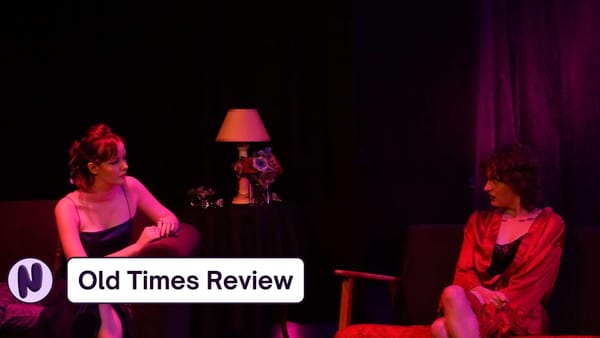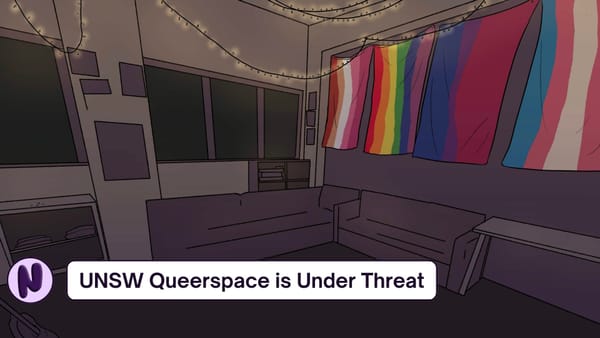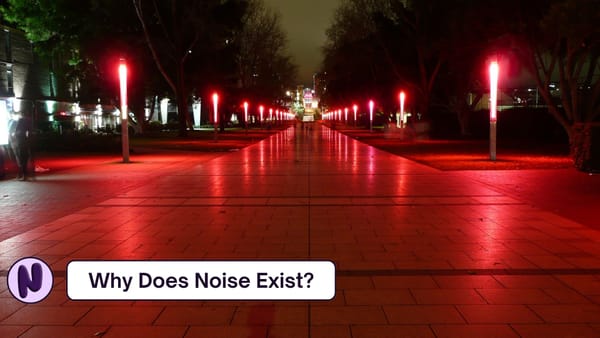A Beginner's Guide to the UNSW SRC
Alice explores the key aspects of UNSW's Student Representative Council.

Feeling overwhelmed reading the coverage of this month’s SRC coverage? Don’t worry, you’re not alone, because I felt overwhelmed writing it. Student politics can be daunting when you know nothing about it, but, luckily for you, I’ve compiled this handy beginners guide to help you through the chaos that is UNSW SRC.
What is the SRC?
The SRC, or Student Representative Council, is composed of 27 elected members, all of whom are students at UNSW. This includes:
The President
Responsible for convening and chairing SRC meetings, the President acts as the official spokesperson for the Council, and the primary point of contact between the SRC and the various other Boards and Committees at UNSW.
The General Secretary
Head of clerical and administrative responsibilities, the General Secretary condenses relevant information for SRC use, identifies and facilitates the provision of resources to Council projects, coordinates a central calendar of events and functions, and takes minutes for, and counts votes in, SRC meetings.
Three General Office Bearers and eight Collective Office Bearers
Representing students at Council meetings, raising and discussing issues affecting students, and recommending proposals to the SRC, OBs chair and facilitate meetings of their respective Collectives, and assist with the general administration and organisation of all SRC events, including:
- The Education Officer, responsible for promoting access to and quality of education at UNSW.
- The Welfare Officer, who supports the principle of universal student welfare through awareness and campaigning.
- The Environment Officer, responsible for coordinating campaigns that improve the sustainability and environmentalism of ARC, the SRC, and UNSW.
- The International Students’ Officer, who acts to ensure international students’ issues are adequately represented on Council.
- The Indigenous Officer, who acts as a spokesperson on Indigenous issues, and ensure the issues affecting Indigenous students are adequately represented in the SRC.
- The Queer Officers, who act as spokespeople for Queer students, creating awareness and visibility on campus to ensure that Queer issues are adequately represented on Council. This seat can be split between two members.
- The Students with Disabilities Officers, spokespeople who advocate for support for students with disabilities, in particular, maintaining accessibility to coursework, welfare, physical access, and general accessibility at UNSW. This seat can be split between two members.
- The Women’s Officer, who works to support women in higher education at UNSW and ensures feminism and women’s issues are adequately represented in the SRC.
- The Ethno-Cultural Officer, who acts as a spokesperson for students from diverse ethnic, linguistic and cultural backgrounds, including POC, ensuring the Council recognises the diversity of experiences of people from ethnically diverse backgrounds, and advocating for a university which is tolerant, respectful, and free of racism.
Three Paddington Campus Office Bearers
The Paddington Representation Officer, Paddington Domestic Officer, and Paddington International Officer act as the major points of contact between Paddington students and the various Boards and Committees at UNSW, coordinating events and initiatives, and ensuring a strong and equitable voice in the SRC for Paddington students.
Twelve Councillors, with six from each Electorate
Representing students at Council meetings, raising and discussing issues affecting students, and promoting the activities and campaigns of the SRC to students. At least four of these Councillors, two from each electorate, must be women or gender diverse. Electorate A includes the Arts, Design & Architecture, Law, and Business Schools at UNSW, while Electorate B includes the Engineering, Medicine, and Sciences Schools.
What do they do?
They work to advocate for the rights of students, engaging in campus-wide campaigns to address the issues that affect us. They also run the Student Collectives, which provide additional support services to different underrepresented groups at UNSW, and organise various different events and initiatives.
How are they elected?
Elections are run every year in Term Three, and all Undergraduate Students are eligible to vote in the online polls, although some restrictions apply depending on the positions of Office Bearers, as defined by ARC Regulations.
The positions of International, Indigenous, Students with Disabilities, and Ethno-Cultural Officers may only be run for, and voted by, students who ARC recognises as members of these groups.
The Queer Collective maintains an independent election, meaning only members of the Collective may run or vote for the positions of the Queer Officers.
Only students whose main program is undertaken at the UNSW Art & Design campus may run or vote for the positions of the Paddington Representation Officer, Paddington Domestic Officer, and Paddington International Officer.
Who runs for office?
UNSW currently has two major political parties, known as “tickets”, who pool their resources to produce campaign materials during elections.
Revive/Unity
Revive (formerly Together) is the UNSW ticket which semi-affiliates with the Labor party on both a State and Federal level. “Student Unity” is the national equivalent of this ticket, and is the most consistently used name.
Their 2024 campaign pushed for paid work placements, a stronger voice for Indigenous students, more funding for the UNSW Mental Health Clinic, and a cap on maximum assessment weighting. In the last two years, they have introduced free menstrual products to bathrooms across UNSW, and created the Food Bank for students to access free and heavily discounted food in times of crisis.
They have been criticised in previous years for an unwillingness to criticize government policies, strong ties to the Labor party, frequent name changes, and a lack of transparency from members in governance positions.
Notable members of the 2024 SRC who ran with the Revive ticket include President Michael Rahme, General Secretary Paige Sedgwick, Welfare Officer Annikka Burge, Women’s Officer Imandi Mudugamuwa, Indigenous Officer Brydie Zorz, International Student’s Officer Alexander Pye, and Students with Disabilities Co-Officer Geoffrey Zhen.
Left Action
Left Action is the ticket affiliated with the Socialist Alternative, which has no political backing in NSW or in the Federal government.
In their 2024 campaign, they pushed for increased Centrelink support for students, paid education, a $100 per week cap on rentals, and action on the Cost of Living crisis. Left Action actively discourages engaging with UNSW governance on issues, preferring to protest actions they disagree with. Most protest actions at UNSW, including events by Students For Palestine, are led by this group.
They have been criticised in previous years for harassing students during elections, an unwillingness to address pertinent issues at the university, and “unrealistic” expectations.
Notable members of the 2024 SRC who ran with the Left Action ticket include Education Officer Cherish Kuehlmann, and Environment Officer Gina Elias, along with a number of councillors.
Minor Parties and Independents
Despite running on different parties’ tickets, there are Office Bearers and Councillors who align themselves with UNSW Labor Left, or NLS. Their political focus is on the fight for a humane refugee policy for Australia, women’s rights, eliminating economic inequality, LGBTQIA+ rights, solidarity with First Nations peoples and the advent of socialism in Australia. Notable members of the 2024 SRC include Ethno-Cultural Officer Diya Sengupta and Councillor Elaine Pope.
The Queer Officers Pepsi Sharma and Rebecca Blundell ran as Independents, as a result of the internal election process of the Queer Collective. Paddington Representation Officer Danielle Moutopoulos, Paddington Domestic Officer Edward Zhong, and Paddington International Officer Nishita Kishore, are similarly Independant. Students with Disabilities Co-Officer Timothy To also identifies as an Independent, despite running on the Revive ticket.
Why should I care about any of this?
The SRC is the largest student organising body at UNSW, and is the main way the university hears student voices. The President of the SRC sits on governance bodies at all levels, including Academic Board and the Gendered Violence Steering Committee. The President also has the ability to delegate other SRC representatives to these meetings. As such, it's vital that representatives actually represent the students of the university.
Additionally, the faces you're seeing in student politics now are the next generation of “real” politicians, with several highly active student politicians going into high level positions. Getting to know them and what they stand for at this level, will provide an indication on where the future of the country is going.
I can understand why you might not care about the SRC. In my first year of university, I had absolutely no interest in student politics, and expected to continue this apathy throughout my studies. However, in the last few months of reporting on our SRC meetings, I have found a genuine interest in the proceedings of our Council, and how its members carry out their responsibilities to the student body they represent. If we want to ensure our voices are being heard and reflected in our University, then following the SRC is crucial. Hopefully, this guide will help you do so.



